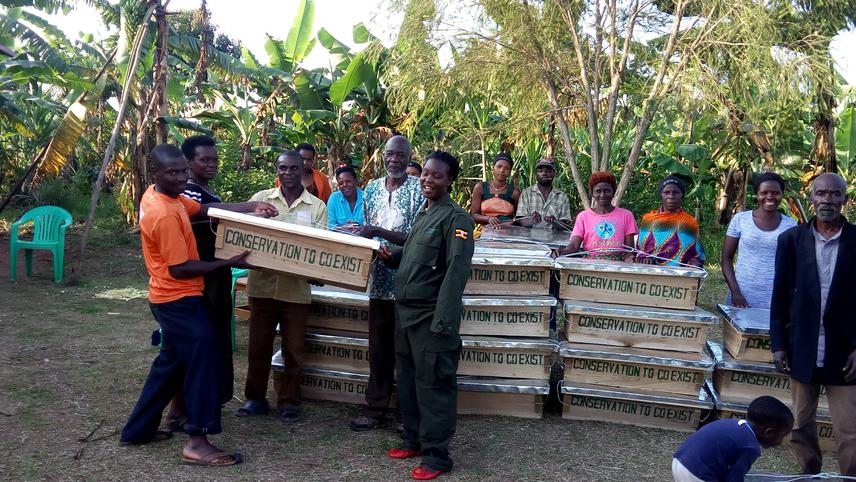Moses Kugonza
Other projects
25 May 2018
Conservation to Coexist: Participatory Action Research for Wildlife Conservation in Kibale National Park, Uganda (Part 2)
9 Aug 2023
Conservation to Coexist: Participatory Action Research for Wildlife Conservation in Kibale National Park, Uganda
Conservation to Coexist aims to improve wildlife conservation by reducing human-wildlife conflict around Kibale National Park, Uganda. Specifically, we aim to reduce the rates that wild animals (such as elephants and chimpanzees) cross into agricultural fields and eat/destroy people’s subsistence crops causing negative feelings about conservation, retaliatory attacks on these species, and the death or injury of animals as they are crop raiding.

Human-wildlife conflict is the greatest threat to the successful conservation of biodiversity around Kibale National Park, Uganda. One of the main sources of conflict is crop raiding. Crop raiding occurs when wild animals from the park eat and/or trample crops in the surrounding agricultural fields causing subsistence farmers to suffer extreme losses of food security. Crop raiding species risk death or injury by farmers who are protecting their food supply or later during retaliatory events. For example, chimpanzees and other animals continue to suffer snare injuries despite ongoing snare removal programs in the park because farmers set snares in their gardens, which injure animals while they are crop raiding. Also, several elephants have been killed in recent years and various species of monkeys are regularly killed when they are found eating people's crops. Furthermore, local people have little interest in supporting conservation initiatives because of this on-going human-wildlife conflict. As local community members working as research assistants in the park, we have seen both sides of this conflict and have watched as tensions have grown between local people and wildlife. Here, we propose a community-based conservation project to implement sustainable land-use changes that will reduce crop raiding and improve conservation efforts.
We have identified four strategies to reduce crop raiding and improve attitudes towards wildlife – maintaining a trench at the boundary of the park, establishing beehives in areas where the trench cannot be maintained, planting tea as a buffer crop, and providing garlic as a cash crop to offset the losses incurred from crop raiding. We have enrolled 115 households along the border of the park that are interested in testing these strategies and are committed to being part of this community conservation project. Through the proposed methods, we will be implementing sustainable changes that aim to:
1) Reduce human-wildlife conflict,
2) Improve conditions for local people,
3) Promote wildlife conservation.
Each participant will take ownership of their role in the project, which we hope will make them feel strongly about conserving the habitat and animals.